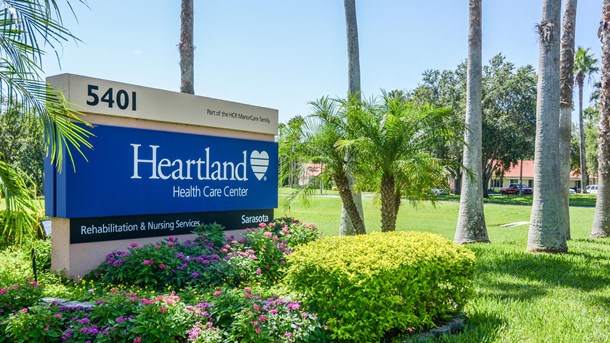Ryzolt Rehab Center Glenn MI
Home
Best Ryzolt Rehab Center Glenn MI Resources and Information Online
Ryzolt Rehab Center Glenn MI
Bearing these in mind, it makes sense for people needing help to seek out faith-based centers. Residential Care Eating Disorders – Adult If you’re not looking for an Inpatient Rehab Center to help overcome your eating disorder, don’t despair. In any case, they have surrendered to unhealthy and extremely damaging methods of dealing with life. We have found that not completing a program can be the foundation for a relapse episode. Addiction Helper carry out free over the phone telephone assessments, conducted by one of our highly trained and skilled addiction treatment experts.
Of course, drug use—either illegal or prescription—doesn’t automatically lead to abuse, and there is no specific point at which drug use moves from casual to problematic. Being Powerless “The mentality and behavior of drug addicts and alcoholics is wholly irrational until you understand that they are completely powerless over their addiction.†-Russell Brand Brand has years of drug abuse behind him and makes his opinion of drug use very clear.
More Resources For Steroids Abuse Treatment Clinic

Much more Resources For K2 Addiction Center Glenn MI
In addition to the alcoholism, other worrisome behaviors — suicidal thoughts/actions, aggression, violence, etc. — may be present. Nearly one-quarter of those who experiment with heroin develop a full-blown drug addiction.
A lot more Resources For Steroids Abuse Treatment Clinic
If you scored 3, there is a 99% chance you’re addicted. A Christian Treatment Center The Road to Freedom uses biblical principles and the 12-step program to help patients detox from drugs and alcohol, gain spiritual guidance, and receive pastoral counseling. In Australia, find drug and alcohol services in each State/Territory from the Department of Health & Aging. Drugs become their purpose, their whole lives revolve around planning, plotting, manipulating, getting and taking drugs. The Road to Recovery A person dependent on psychoactive substances seldom seeks treatment. Bailing your child out of jail if they should be arrested is not always the right thing to do, even if every fiber of your being is in torment at the thought of them being incarcerated.
Here are Some Even more Details on Vicoprofen Addiction Clinic Glenn MI
It is important to be prepared before you call a helpline for a loved one. Twitter will use this info to make your timeline better. The cognitive therapist's job is to uncover this underlying system of beliefs, analyze it with the patient, and thereby demonstrate its dysfunctionality. Addiction Recovery is Possible Are drugs and alcohol destroying your life or your loved one’s life? Have you ever thought you should Cut down your drug use? The challenge with this method is that it’s difficult to tell whether or not the entities provide free treatment without contacting them or your state mental health or substance abuse agency. Avoid self-blame. You can support a person with a substance abuse problem and encourage treatment, but you can’t force an addict to change. It’s because of this personal and courteous service that our product sets the precedent for any other databases in the industry. Properly treated drug adiction canbe managed, and the person is able to maintain a healthy and productive life. Medication like methadone and buprenorphine can be used to treat addiction to prescription opiates, and behavioral therapies can be used to treat addiction to prescription stimulants, benzodiazepines, and other drugs.[6] Types of behavioral therapy include: Cognitive-behavioral therapy, which seeks to help patients to recognize, avoid and cope with situations in which they are most likely to relapse. Most treatment centers base their statistics on the people who complete the program and are drug and alcohol-free. Our Christian Counselors are here to help you 24 hours a day, 7 days a week. Other facilities have a gender-specific focus or specialize in specific behavioral addictions. Behavioral treatment, therefore, necessarily requires individuals to admit their addiction, renounce their former lifestyle, and seek a supportive social network who can help them remain sober. As an abstinence based 12-step alcohol and drug rehab center, anonymity is the foundation of our program. Relapse prevention[edit] An influential cognitive-behavioral approach to addiction recovery and therapy has been Alan Marlatt's (1985) Relapse Prevention approach.[34] Marlatt describes four psychosocial processes relevant to the addiction and relapse processes: self-efficacy, outcome expectancies, attributions of causality, and decision-making processes. However, sometimes people feel as if they must do it on their own in order for the recovery process to be lasting.
Click Here for More Information
Previous Next
You may also like:
Xodol Detox Programs Au Sable Forks NY
Amphetamine Detox Treatment Facilities Lutz FL
Methaqualone Addiction Treatment Facilities Rio Vista CA
Speed Abuse Clinic Mount Washington NH
Chlordiazepoxide Addiction Rehab Center Fountain Hill AR
Focalin Detox Treatment Clinics Raywood TX
Biocodone Abuse Treatment Long Grove IA
Abuse Treatment Clinic Mount Airy LA
Acamprosate Detox Treatment Facility Lake City AR
Disulfiram Addiction Rehab Facilities Martinsville VA
Rehab Agency Sun City Center FL
Endocet Addiction Detox Facilities Susan VA
Lortab Addiction Detox Program Lyons Falls NY
Ghb Addiction Detox Programs Barbourville KY
Secobarbital Abuse Treatment Facilities Woodlawn IL
Depade Abuse Treatment Facilities Imperial MO
Hycodan Addiction Rehab Facilities Darling MS
Christian Based Rehabs Cuddy PA
Duragesic Rehab Treatment Facilities Wellton AZ
Opioids Addiction Treatment Clinics Knoxville PA